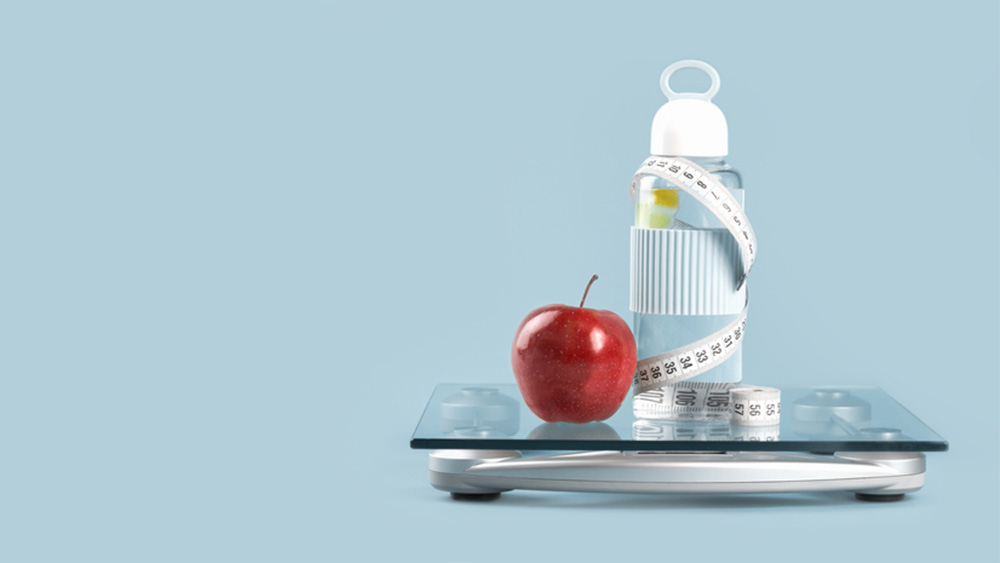Medical
How To Take Care of Wounds: When To Get A Tetanus Vaccine
Taking care of wounds is an essential life skill. The correct care can prevent infection and sepsis. Learn how to take care of wounds and when it’s time to get a tetanus vaccine.

Whether it’s a paper cut or a surgery-induced injury, a wound requires proper care. Wounds are a common occurrence in everyday life and can be caused by accidents, injuries, or surgeries. They can vary in size and severity, from minor cuts and scrapes to deep slashes and surgical incisions.
Need all your wellness solutions in one place? A whole new world awaits just a click away.
Related story: Toxic Shock Syndrome—Why Menstrual Hygiene Matters
Proper wound care is essential to promote healing and prevent infection, which can lead to more serious complications. Here are some tips for reducing the appearance of scars caused by injuries such as skinned knees or deep scratches:
- Keep your cut, scrape, or other skin injuries clean at all times. Wash the area gently with mild soap and water to keep bacteria and debris at bay.
- The American Academy of Dermatology recommends keeping the wound moist with petroleum jelly to help the wounded skin heal. Petroleum jelly keeps the wound from drying out and creating a scab; wounds with scabs heal more slowly. This will also prevent a scar from becoming too big, deep, or itchy. It is not necessary to apply anti-bacterial ointments as long as the wound is cleaned daily.
- Cover the skin with an adhesive bandage after washing the area and applying petroleum jelly or a similar ointment. Hydrogel may be useful for major scrapes, wounds, burns, or chronic redness.
- Change your bandage on a daily basis to keep the wound clean as it heals. If your skin is sensitive to adhesives, use a non-adhesive gauze pad with paper tape instead. When changing silicone gel or hydrogel sheets, follow the instructions on the package.
- If your injury necessitates stitches, follow your doctor's instructions for wound care and when to get the stitches removed.
- After the wound has healed, apply sunscreen. Sun protection may aid in the reduction of red or brown discolouration and the speed with which the scar fades. An SPF (sun protection factor) of 30 or higher is recommended, as it provides adequate protection against most UVB rays.
Related Story: 13 First Aid Essentials You Must Have In Your Medical
What To Do If You Have A Open Wound
- Clean the wound under running water to remove filth and debris.
- If you suspect some debri is deep in the wound, visit a hospital or your office OHC. The medical professional will evaluate the need for surgical exploration.
- The doctor may also recommend a Tetanus vaccination.
- If the injury is deep or wide, the doctor will use stitches or staples to close the wound.
- Your doctor will dress the wound depending upon its severity. Medications for pain relief. Pain causes blood vessels to tighten, slowing healing. Inform your doctor if your wound is causing you pain. The doctor may advise you to use over-the-counter pain relievers such as paracetamol or may prescribe stronger pain relievers.
- The doctor may prescribe antibiotics to prevent or treat infection symptoms such as pain, pus, and fever. If antibiotics and antimicrobial dressings are required, take exactly as directed.
- Some medications, such as anti-inflammatory drugs and steroids, interfere with the healing process of the body. Inform your doctor about all medications you are taking or have previously taken (including natural remedies). Until the wound heals, your doctor may adjust the dose or prescribe different medications.
Related story: E-Pharmacy: Advantages of An Online Prescription
When to get a tetanus shot?
A tetanus shot is a vaccine that protects against the bacterial disease. Symptoms of tetanus can include muscle stiffness and spasms, particularly in the jaw and neck (hence the name "lockjaw"), as well as fever, sweating, and difficulty swallowing. When you get the right dose of tetanus vaccination, your body develops antibodies, which are unique proteins that help your immune system fight any wounds or injuries. Clostridium tetani bacteria can be found in manure and soil. Tetanus infections are most commonly caused by a wound that allows the bacterium to enter your body.
Stepping on a nail, for example, is a common cause of tetanus infections. When germs enter your body, they produce a poison that causes your muscles to contract. Your mouth may enlarge, making swallowing difficult. If not treated promptly, muscle stiffness spreads and, in extreme cases, can be fatal. To determine whether you require a tetanus injection, first, determine whether the instrument that caused the wound was clean or dirty. A dirty thing will have dirt, soil, spit, or faeces on it. You will require a tetanus injection if:
- The wound may have been induced by dirt, and you haven't had a tetanus shot in more than five years.
- Ideally, the tetanus vaccination should be administered in three doses at birth: two, four, and six months.
- Another dose should be administered when the baby is 15 - 18 months old, 4 - 6 years old, and 11 - 12 years old.
- Beginning at the age of 19, you should have a Td booster shot every ten years. Pregnant women should get vaccinated during their third trimester so that their infant is protected from whooping cough, which is common in newborns, nearly soon after birth.
- After discussing your medical history, including any previous vaccinations and allergies, we can determine if you are a candidate for the shot. If you are, we will administer the shot after sterilising your skin at the injection site.
- Look for signs of an adverse response after getting your tetanus shot, such as hives, swelling of the throat or face, difficulty breathing, high temperature, rapid heart rate, dizziness, or weakness. Please keep in mind that while these symptoms are uncommon, it is critical to be conscious of your health at all times.
Adolescents and adults who have never had a tetanus-containing vaccine are advised to receive three doses with at least four weeks between doses. Booster doses are administered ten and twenty years following the initial shot.
Need all your wellness solutions in one place? A whole new world awaits just a click away.
Medical Care At UR.Life OHC
With the UR.Life Occupation Health Center, we help you to invest in your health goals through seamless interventions and targeted medical treatments. Our holistic wellness approach caters to all aspects of your well-being, and we ensure that you can bring your whole self to work.
With our medical professionals by your side, routine health check-ups will never be an issue. Advanced laboratory technologies back UR.Life Occupational Health Centers (OHC), and with highly qualified experts/technicians, we are committed to delivering trusted and quality recommendations, modifications, and advice to you. With our medical professionals by your side, emergency infectious health hazards will never be an issue. Our healthcare experience includes:
- Ambulance service
- IV fluids
- On-site medical and first aid equipment
- Doctors and nurses on site
- Oral Rehydration Solution (ORS)
- Electrolyte drinks
URLife's holistic wellness approach identifies the factors that will enable you to achieve a stress-free workplace experience, one that caters to a healthy lifestyle by prioritising physical activity. When you visit an OHC centre, ask for:
Ask for a health risk assessment
Health Risk Assessment offers health risk status for chronic and lifestyle conditions, these include health checks for diabetes, heart health, obesity, poor sleep, and stress management. Recommendations are given based on the risk score to control and manage the risks. These recommendations include consultations with medical specialists, expert nutritionists, physical trainers, and mental health coaches who create personalised plans for diet and lifestyle modification.
Ask for a personalised nutrition plan
Our holistic wellness approach caters to all aspects of your nutritious well-being. This ensures that you can bring your whole self to work. Our evidence-based approach to food regimens, movement programmes, and mental health resources sets us apart from our competitors.
Get on a customised workout plan to get fitter
Our team of highly trained experts is adept at customising personalised training and nutrition plans to help you meet your health goals.
Talk to a mental health expert to learn stress management
We have a diverse network of qualified therapists and medical experts who are trained to guide you on techniques to manage stress.
Ask for a smoking cessation program
If you are looking to make behavioural changes you are not alone. Speak to your OHC representative today to know more about URLife’s on-demand substance abuse programs.
Educate yourself on stress management and health risks
Visit scheduled web talks and seminars on health and wellness to learn about stress management, and better productivity. With UR.Life Corporate Wellness by your side, you will be better armed to tackle stress. Our complete holistic well-being packages offer lifestyle solutions, consultations, and other customised services to help you live a fit and healthy life.
Click here to learn more about the UR.Life Corporate Wellness programme and unlock better health.
EXPLORE MORE
If you’ve been eating better, moving more, and your body still isn’t budging, you’re not imagining it. It’s not only about how much you eat; your body’s hormones, stress response, sleep patterns, and built-in survival system also influence your weight. Here’s what’s going on and what truly works.
Here’s a clinician-led, practical guide to the drugs that reduce fertility, how they work, and sensible steps to protect your reproductive future.
You can’t always see it or smell it, but it’s there, the invisible haze that seeps into your lungs and alters them from the inside out. Pollution isn’t just an environmental problem anymore; it’s personal.
Your 40s can be powerful years, if you stop doing what quietly harms your heart. Here’s what cardiologists say you should drop.








.jpg)

